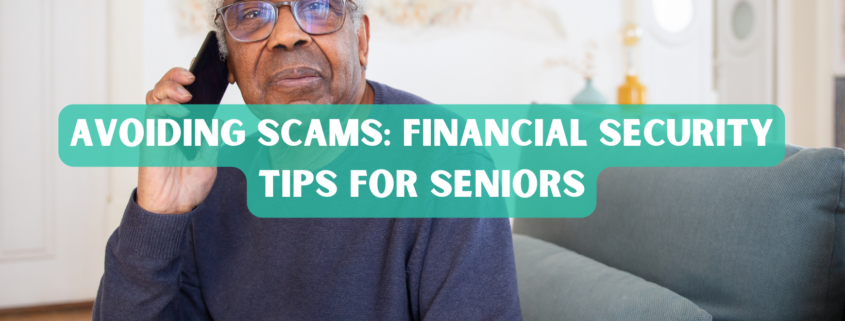Avoiding Scams: Financial Security Tips for Seniors
Scammers frequently target seniors, using deceptive tactics to steal money, personal information, and even Medicare benefits. As technology advances, so do the methods that fraudsters use to trick unsuspecting individuals. Protecting yourself from scams is crucial for maintaining financial security and peace of mind. At BroadZero, we are committed to helping seniors in Philadelphia stay informed and protected. Here are some essential tips to avoid scams and safeguard your finances.
1. Recognize Common Senior Scams
Scammers often prey on seniors through phone calls, emails, and even in-person schemes. Some of the most common scams include:
- Medicare Scams – Fraudsters pretend to be Medicare representatives and ask for personal information, claiming they need to issue a new card or verify your details. Remember, Medicare will never call you unsolicited.
- Social Security Scams – Scammers may claim that your Social Security number has been suspended due to suspicious activity and demand payment to reinstate it.
- Tech Support Scams – Fake tech support calls inform you of a “virus” on your computer, asking for remote access or payment for unnecessary services.
- Grandparent Scams – Criminals impersonate a family member in distress, claiming they need immediate financial help.
- Lottery and Sweepstakes Scams – You may receive a call or email saying you’ve won a prize but must pay fees or taxes upfront to claim it.
By being aware of these scams, you can better protect yourself from falling victim.
2. Never Share Personal or Financial Information
One of the simplest ways to avoid scams is to keep your personal information private. Never share sensitive details such as:
- Your Medicare or Social Security number
- Bank account or credit card information
- Login credentials for online accounts
Legitimate agencies, including Medicare, Social Security, and banks, will never call, email, or text asking for this information. If you receive an unsolicited request, hang up and contact the organization directly using their official phone number.
3. Be Cautious with Phone Calls and Emails
Scammers often use high-pressure tactics to get you to act quickly. If someone calls claiming you owe money, have won a prize, or need to confirm personal details, take a step back. Here’s what to do:
- Don’t answer unknown numbers – Let calls from unfamiliar numbers go to voicemail.
- Hang up on robocalls – If you hear a prerecorded message asking you to press a button, it’s likely a scam.
- Verify emails before clicking links – Scammers use fake emails pretending to be from banks, Medicare, or government agencies. Hover over links to check if they lead to a legitimate website.
4. Monitor Your Medicare and Financial Statements
Regularly review your Medicare Summary Notice (MSN), bank statements, and credit card reports to spot any unauthorized charges or suspicious activity. If you notice something unusual, report it immediately.
5. Report Scams Immediately
If you believe you’ve encountered a scam, report it to the appropriate authorities:
- Medicare fraud – Call 1-800-MEDICARE (1-800-633-4227)
- Social Security scams – Report at oig.ssa.gov
- Financial fraud – Contact the Federal Trade Commission (FTC) at reportfraud.ftc.gov
Conclusion
Scammers are always finding new ways to target seniors, but staying informed and cautious can help protect your finances and personal information. By recognizing scams, keeping your information private, and reporting fraud, you can safeguard your financial well-being. BroadZero is dedicated to helping Philadelphia seniors navigate financial security and Medicare with confidence. If you have any questions or concerns, reach out to us for trusted guidance and support.








Leave a Reply
Want to join the discussion?Feel free to contribute!